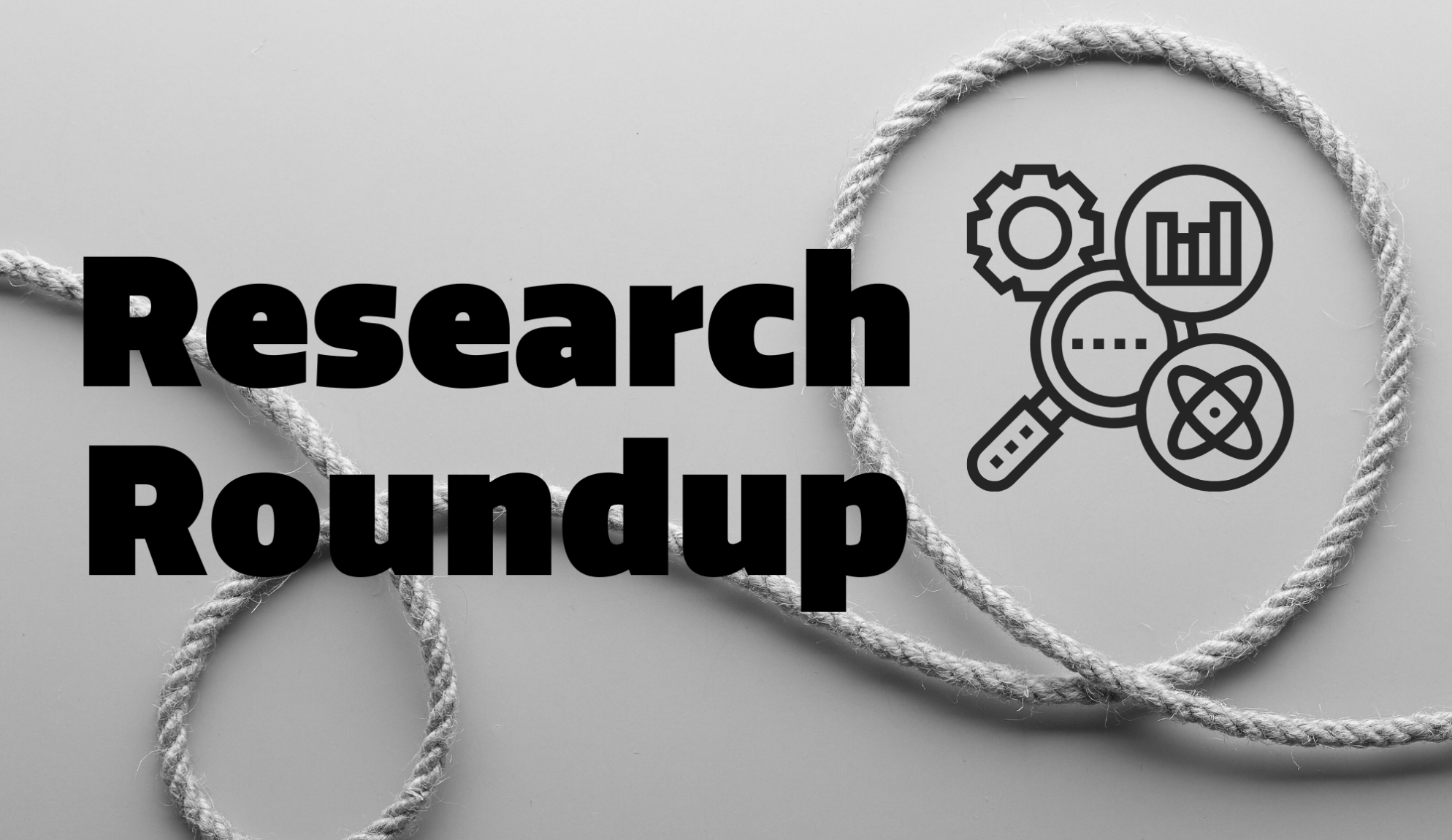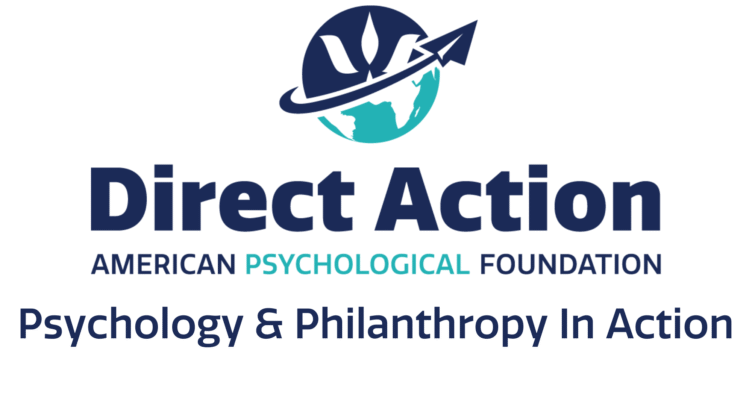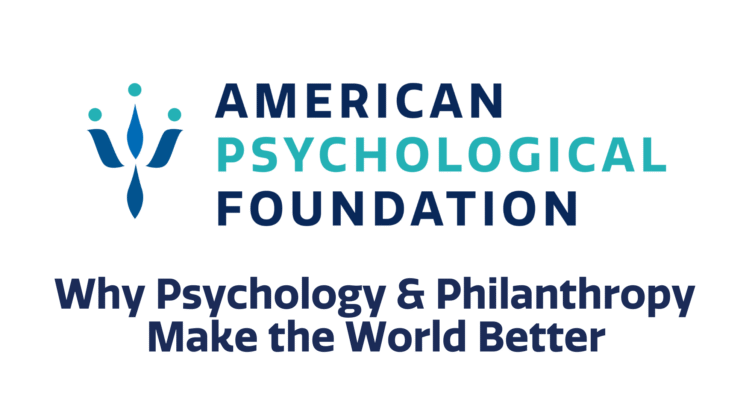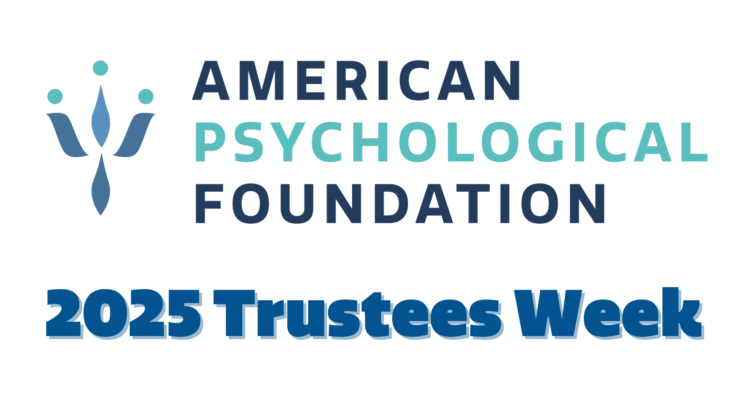APF Research Roundup: Survivor Support, Healing, and Prevention Edition

Sexual Assault Awareness Month highlights the impact of sexual violence and the urgent need for research and interventions in prevention, support, and healing. At APF, we are dedicated to funding psychological research that addresses the mental health impacts of sexual assault and its far-reaching ripple effects. Through supporting evidence-based prevention strategies, trauma-informed interventions, and survivor-centered care, we aim to promote healing, resilience, and improved well-being of individuals and communities affected by sexual violence.
Read on to learn more about some recent APF-funded projects that are driving progress in sexual assault awareness and prevention.

Reina Kiefer (she/her)
University of Rhode Island
2024 COGDOP Graduate Student Scholarships
Project Title
Assessing State Emotion and Acute Alcohol Intoxication on Sexual Assault Risk Perception
Research Summary
Reinaʼs research interests focus on mechanisms that confer risk for unwanted sexual experiences and related harm across the lifespan, most notably college campus sexual assault. She is particularly interested in factors linked to victimization and revictimization, such as risk perception and alcohol intoxication. Reina is currently completing an NIH F31 examining the effects of negative/positive emotion and acute alcohol intoxication on sexual assault risk perception. Another line of her research includes studying factors that confer risk/resilience for the development and maintenance of PTSD, with an emphasis on emotion regulation.

Meredith Blackwell (she/her)
University of New Mexico
2023 Dr. Christine Blasey Ford Grant
Project Title
Measurement of Sexual Violence among Refugee and Forcibly Displaced Women in the United States
Research Summary
Meredith’s research is focused on improving mental health services for refugees and people exposed to war violence. For this community-based project, refugee and immigrant community leaders will conduct interviews with women exposed to displacement about experiences with sexual violence in their communities. With collaboration from these community leaders, we will develop a culturally-valid and semantically-faithful assessment of sexual violence to improve detection and direct resources and to the areas of greatest need for women in these communities.
Dr. Diana E. Betz (she/her)
Loyola University Maryland
2023 Society for General Psychology and Interdisciplinary Inquiry Mary Whiton Calkins Grant
Project Title
Do Perceived Threats Drive Skepticism of Sexual Assault Research? The Role of Hostile and Benevolent Sexism
Research Summary
People tend to deny scientific findings when they threaten their important beliefs (Ponce de Leon et al., 2020; Washburn & Skitka, 2018). What kinds of beliefs might drive skepticism of research about sexual assault? Ambivalent sexism is a likely candidate, as it combines admiration for feminine fragility with resentment of womenʼs pursuit of power (Glick & Fiske, 1997). This project tests whether reading scientific research about sexual assault will make American men feel more threatened than other types of research, and thus more skeptical of the findings. Specfically, we ask whether men with stronger ambivalently sexist attitudes react to sexual assault research with fears of career setbacks, reputation costs, and changing norms, leading in turn to scientific skepticism.

Dr. Selime R. Salim (she/her)
Stanford University
2023 Visionary Grant
Project Title
Web-based Screening and Brief Intervention Tool (SBIT) for Alcohol Use following Sexual Assault: Adaptation for Sexual Minority Women and Gender Diverse Adults
Research Summary
Sexual minority women (SMW) and transgender and gender diverse (TGD) adults experience disparities in sexual violence and alcohol use compared to cisgender, heterosexual peers. Culturally adapted interventions for alcohol use following sexual violence among SMW and TGD people are sorely needed as this is a is a high risk period for increased alcohol use due to trauma-related distress. The current project will adapt a web-based Screening and Brief Intervention (SBIT) for reducing alcohol misuse following sexual assault to the unique experiences and needs of SMW and TGD survivors.
Want to contribute to projects like this and create impact through psychology? Donate to APF today!
Topics: Recipient Update Research Roundup Violence Prevention
Discover More

Psychology & Philanthropy In Action with Dr. Kiara Álvarez
At APF, we’re bringing together the shared power of psychology and philanthropy to create a world where people are healthy, happy, and living with dignity. …

Why Psychology & Philanthropy Make the World Better
In this blog post, APF’s CEO, Dr. Michelle Quist Ryder, and APF’s Managing Director & Head of Philanthropy, share their insights on how philanthropy and …

Trustees Week: Celebrating APF’s Board of Trustees
We’re celebrating Trustees Week! At APF, we’re proud to work alongside our amazing Board of Trustees, who volunteer their time, talent, and expertise to help our mission thrive.
